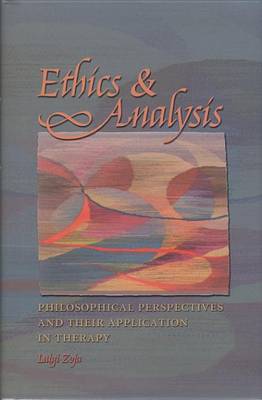Carolyn and Ernest Fay Series in Analytical Psychology
1 total work
Most books on psychoanalytical ethics focus on rules, but author Luigi Zoja argues that ethics is really concerned with personal decisions - as is analysis itself. Rules are defined by others and center on punishment, but the purpose of analysis is to free the individual to make choices from his or her own ""best"" psychological and emotional center while still respecting society. Rules establish black and white; real ethics and psychological understanding both operate in the gray zone. Rules emerge from Enlightenment rationality; true ethics proceeds from choices and thus cannot be given in advance or be satisfied by respecting the rational part of the psyche only. After considering the nature of ethics, Zoja turns to Immanuel Kant and Max Weber for a practical consideration of therapeutic relationships. He applies his ethical principles to the first psychoanalytical cases (Anna O. and Sabine Spielrein) described by Freud and Jung. In his thorough examination of these original examples, Zoja balances the traditional ethic of rules and law with the ""new ethic"" proposed by Erich Neumann. The result is an appreciation of the complex - at times even contradictory - yet healing nature of analysis.
